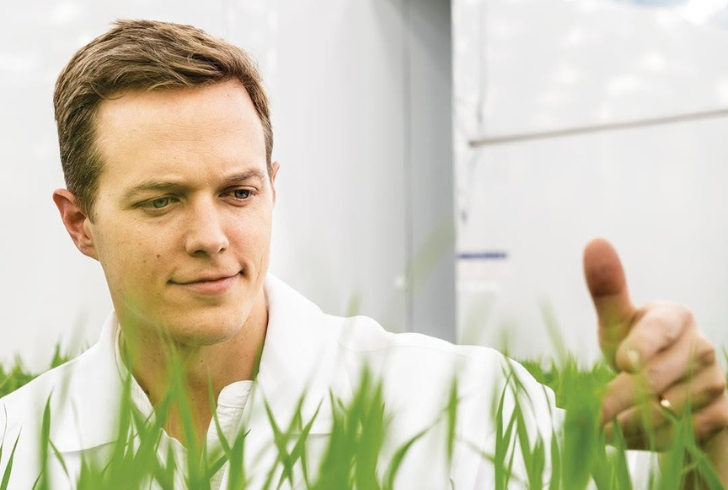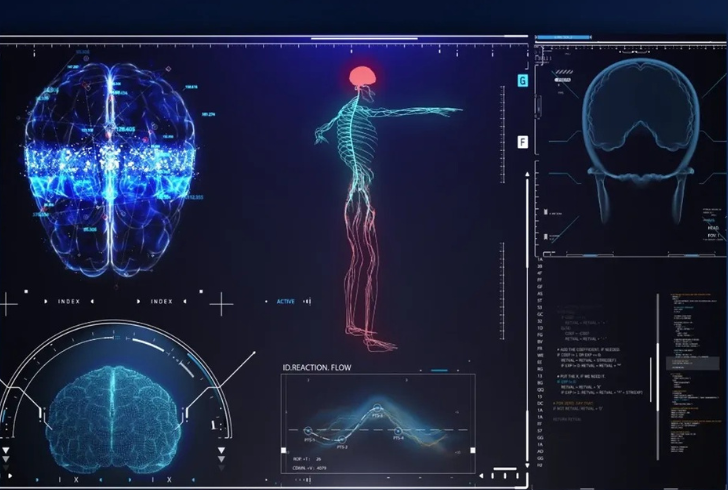AI Superintelligence Startup Aims to Revolutionize Drug Discovery
Artificial intelligence (AI) is reshaping multiple industries, and its impact on medicine and drug discovery is becoming one of the most exciting advancements. Companies like Lila Sciences and Recursion Pharmaceuticals are leading this transformation, using AI to accelerate scientific breakthroughs and revolutionize drug development.
With massive investments and cutting-edge technology, these companies are harnessing AI to unlock previously out-of-reach discoveries. Their work promises to speed up drug development and offer groundbreaking insights into materials science and biological research.
The Rise of AI in Scientific Discovery

Instagram | geoffreyvonmaltzahn | Scaling experimentation reveals hidden discoveries, says CEO Geoffrey von Maltzahn.
Lila Sciences is pioneering a new approach by integrating generative AI with autonomous labs. This system allows AI to generate hypotheses, conduct real-time experiments, and refine scientific theories at a scale beyond human capability. According to CEO Geoffrey von Maltzahn, “Scaling experimentation allows us to unlock discoveries that would otherwise remain hidden.”
Traditionally, scientific progress has relied on slow, methodical experimentation. While this process has led to remarkable breakthroughs, it is inherently limited by human capacity. Lila Sciences, launched by Flagship Pioneering in 2023, aims to surpass these barriers by developing an AI-driven “scientific superintelligence.”
By combining vast amounts of scientific data with autonomous laboratory systems, the company seeks to revolutionize research across multiple fields, from drug development to materials science.
AI’s Impact on Materials Science and Green Technology
Lila Sciences has already demonstrated its capabilities by contributing to materials science innovations. The company has played a key role in developing catalysts for green hydrogen production and materials for carbon capture, both of which are critical for addressing climate change. These early successes highlight the potential of AI-driven research to solve complex global challenges.
AI-Driven Mapping of Human Biology
Recursion Pharmaceuticals, founded in 2013, takes a different but complementary approach. The company focuses on using AI to create a detailed map of human biology, which helps accelerate drug discovery.
Located in Salt Lake City, Utah, Recursion integrates experimental biology, bioinformatics, and machine learning to test thousands of compounds simultaneously. The company’s goal is to overcome the rising costs and lengthy timelines associated with traditional drug development, often referred to as “Eroom’s Law”—the paradox where technological advances have not reduced drug discovery costs.

Instagram | mission_icu | AI-Driven Mapping of Human Biology speeds up drug discovery with AI.
Through AI-powered analysis, Recursion identifies promising drug candidates by recognizing complex patterns within cellular data. CEO Chris Gibson explains, “We’re not just looking for the next breakthrough drug; we’re redefining how drug discovery happens.”
Three Scaling Laws Driving AI Innovation
The rapid advancement of AI in scientific research is fueled by three key scaling laws that dictate how AI models improve:
1. Pre-Training Scaling
Larger AI models trained on vast datasets exhibit predictable improvements in performance. This principle has driven the development of advanced transformer models, enabling AI to process and analyze enormous volumes of scientific literature.
For drug discovery, this means AI can integrate millions of research papers, experimental results, and theoretical models, creating an unmatched knowledge base.
2. Post-Training Scaling
Once an AI model is pre-trained, it can be refined for specific scientific fields through specialized training techniques.
Andrew Beam, Ph.D., Chief Technology Officer at Lila Sciences, states, “The post-training ecosystem requires nearly 30 times more computational power than the original training phase, but this investment allows us to optimize AI models for highly specific scientific challenges.”
This refinement process is crucial for AI applications in drug discovery, as models must be trained to understand intricate biological interactions, protein structures, and chemical reactions.
3. Test-Time Scaling (Long-Term Thinking)
Test-time scaling allows AI to engage in complex reasoning rather than simply providing immediate responses.
Kenneth Stanley, Ph.D., Senior Vice President at Lila Sciences, explains, “Scientific reasoning requires deep exploration. AI models must analyze multiple potential solutions, much like human researchers tackling a difficult problem.”
This approach enables AI to conduct thorough investigations, ensuring that its findings are not only accurate but also transparent and reproducible.
The Talent Behind AI-Driven Scientific Breakthroughs

Freepik | Frolopiaton Palm | Companies with advanced AI and autonomous lab capabilities are poised to lead the next generation of drug discovery.
The success of AI-driven scientific research depends on the expertise of interdisciplinary teams. Lila Sciences and Recursion Pharmaceuticals have assembled leading experts in AI, biology, chemistry, and robotics.
Lila’s team includes renowned geneticist George Church, Ph.D., AI researcher Andrew Beam, Ph.D., and AI innovation pioneer Kenneth Stanley, Ph.D. Their combined expertise enables Lila to develop AI-driven experimentation platforms that push the boundaries of scientific discovery.
Similarly, Recursion brings together specialists in machine learning, experimental biology, and drug development. This fusion of knowledge allows the company to translate AI-driven insights into tangible medical advancements.
The Future of AI in Medicine and Beyond
As AI models become more advanced, the competitive landscape of drug discovery is shifting. Companies that successfully leverage AI-driven research and autonomous labs will gain a significant edge in developing life-saving treatments and new materials.
Lila Sciences and Recursion Pharmaceuticals represent two distinct yet complementary approaches to AI-driven scientific discovery. Lila’s focus on scientific superintelligence positions it to impact multiple research fields, while Recursion’s expertise in biology and drug development makes it a key player in revolutionizing medicine.
With AI-powered platforms advancing at an unprecedented rate, the next wave of scientific breakthroughs could redefine healthcare, energy production, and fundamental scientific understanding.